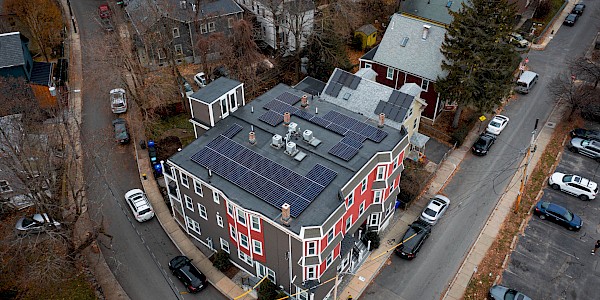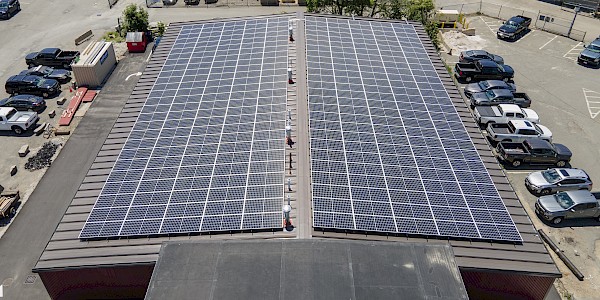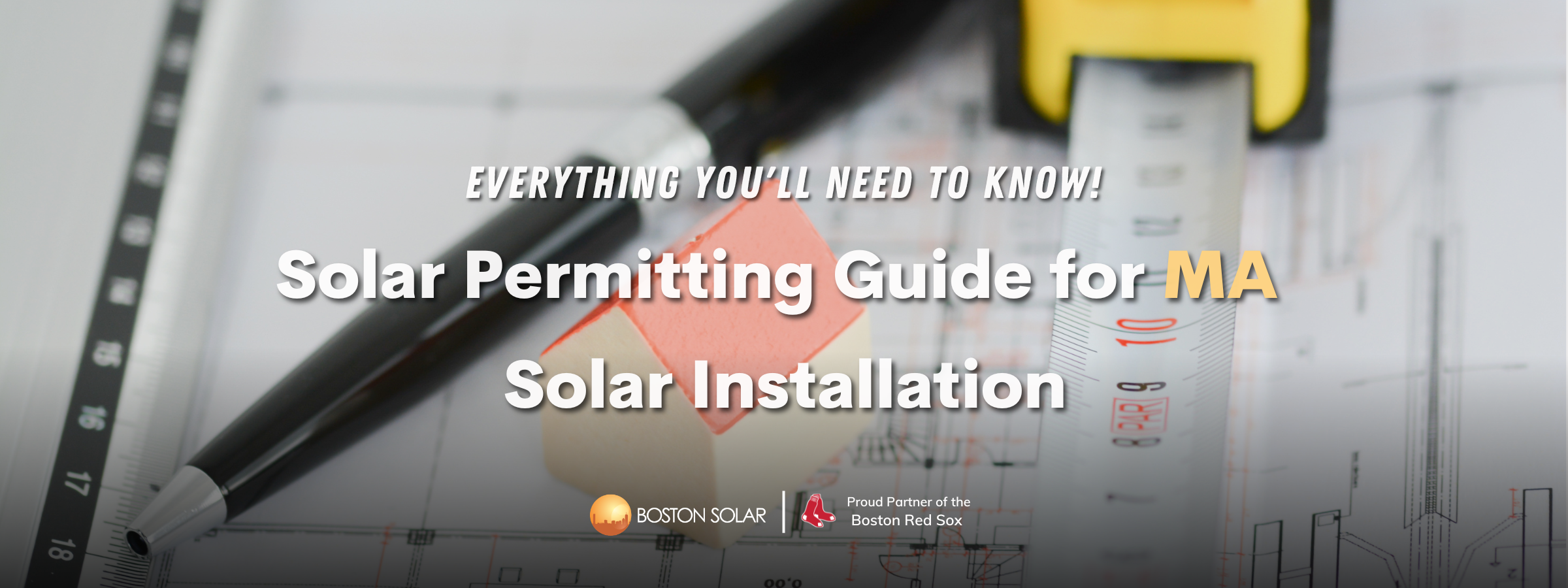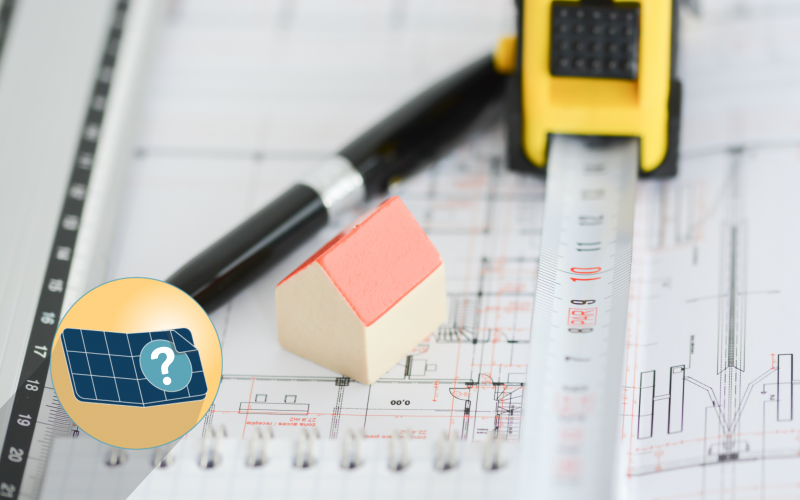Solar Permitting Guide for Massachusetts Solar Installation
May. 11, 2023
If you want to install solar panels in Massachusetts, you will need a solar permit. Like most states, Massachusetts has laws and regulations in place to ensure home solar panels are safely installed and properly connected to the electric grid.
Boston Solar makes it easy to get a solar permit in Massachusetts. As a local solar company, we are well-versed in the state’s solar panel permit requirements and will make sure your photovoltaic (PV) system is code-compliant.
Permit Requirements for Home Solar Panel Installation
Installing a solar energy system requires the same local approval as any other construction or electrical project.
In most cases, you will need these types of permits for a residential solar installation:
- Electrical permit
- Structural or building permit
There are several forms that must be submitted before you can receive approval for your solar installation. Requirements vary by town, but almost every town and city in Massachusetts requires the following:
- A contract between the solar installer and the homeowner that authorizes the solar installer to pull permits for the homeowner
- Proof of liability and workers' compensation insurance
- Proof of applicable licenses (Construction Supervisor, Home Improvement Contractor, Master Electrician)
- Design plans for the system
- Structural engineer analysis for roof loading
Boston Solar will confirm the exact permits you need based on your location and proposed system, and submit all necessary paperwork to obtain them. We handle the entire solar panel permitting process for you so you don’t have to worry about jumping through bureaucratic hoops.
Solar Permitting Requirements Vary by Location
While there are state-wide regulations around solar installation, many solar panel permit requirements are set at the local level and vary depending on the town or city you live in. In some cases, permitting requirements vary by neighborhood—if you live in a historic district or have an HOA, for example, your project may require additional approvals.
System Size and Type Impact Solar Permit Requirements
Solar permitting requirements also vary depending on the type and size of your solar energy system. If you plan to install a ground-mounted solar system, for example, you may need to meet zoning and land use regulations that don’t apply to rooftop solar.
Grid Interconnection
Unless you install off-grid solar panels, your home solar system will be connected to the electric grid. This is called grid interconnection and it has two main benefits:
- You will be able to draw power from the grid when your solar panels are not producing energy.
- You will be able to participate in net metering (depending on your utility company and system size).
To connect your solar system to the grid, you will need to complete a two-phase interconnection approval process. The initial interconnection approval process involves a review of the system specifications and design as well as the current solar generation connected to the utility transformer serving your home. The final interconnection process requires a municipal electrical inspection to ensure that your system meets all requirements and can be safely connected to the grid as well as a review of the as-built system details.
Boston Solar will arrange all the necessary inspections and be present for them if needed. When your system is approved, we will activate it for you remotely so you can begin producing power. We will need to establish an on-site internet connection with the equipment before we can do this.
Solar Permitting Timeline Expectations
Solar permitting is just one step in the solar installation process, which also includes:
- An introductory residential solar consultation
- A follow-up visit to confirm the details of your project and financing
- Signing your contract
- Site Visit
- Design and engineering
- Permitting
- Solar Installation
- Inspections and commissioning
The entire process, from your initial consultation to the final installation, usually takes between 90-120 days. The process can take longer, however, especially if your system is over 15 kW, is ground-mounted, or includes battery storage.
How long it takes to get a solar permit primarily depends on your town’s solar permitting process. The process, and the amount of time it takes to receive approvals, can vary depending on where you live and how busy the permitting offices are. We will do everything we can to ensure a timely installation and will always keep you informed of where we are in the solar permitting process.
Boston Solar Streamlines the Solar Installation Process
Boston Solar makes the entire solar process, from system sizing and design to permitting and installation, easy. We handle the entire permitting process and will make sure your system meets all state and local requirements. Our team has installed more than 5,000 solar systems and is a leading, local name you can trust with your home solar installation.
Find out if solar is right for your home. Call 617-858-1645 or contact us for a free solar consultation.




